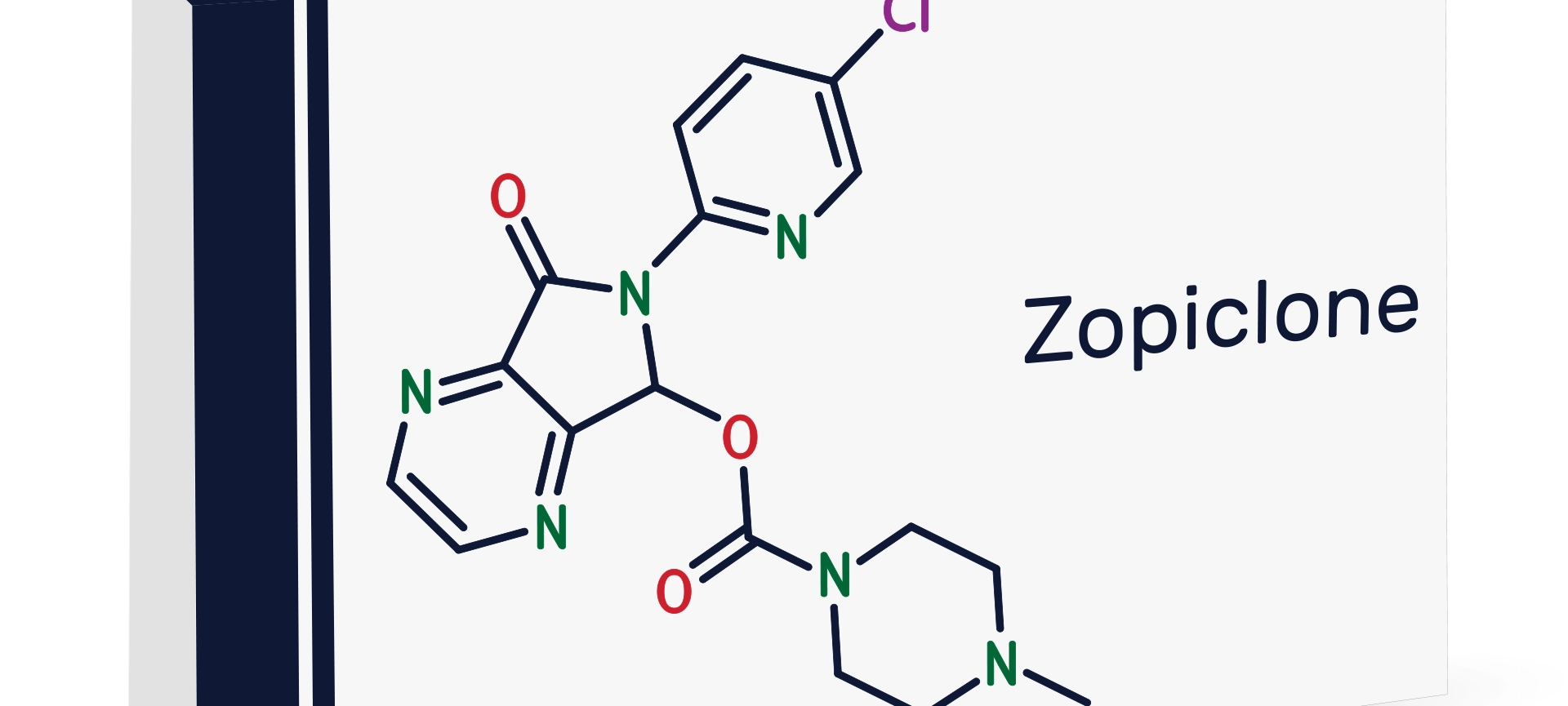Zopiclone is a commonly prescribed medication for the short-term treatment of insomnia. It is known for its effectiveness in helping individuals fall asleep faster and stay asleep longer. However, like many sleep aids, Zopiclone is not intended for long-term use due to the risk of dependency. When individuals decide to discontinue Zopiclone, they may experience withdrawal symptoms that can be uncomfortable and challenging to manage. In this blog, we will explore the symptoms of Zopiclone withdrawal, the typical timeline for withdrawal, and how to safely taper off the medication to minimize discomfort and reduce the risk of relapse.
Understanding Zopiclone and Its Potential for Dependency
Zopiclone belongs to a class of medications known as non-benzodiazepine hypnotics, often referred to as “Z-drugs.” While Zopiclone is less addictive than some older sleep medications, such as benzodiazepines, it still carries a risk of dependency, especially when used for extended periods or in higher doses than prescribed.
Dependency on Zopiclone can develop when the body becomes accustomed to the presence of the drug, leading to a situation where stopping its use suddenly can result in withdrawal symptoms. These symptoms can vary in severity depending on factors such as the duration of use, dosage, and individual health conditions.
Related Article: https://addictionrehabtoronto.ca/what-is-zopiclone/
Symptoms of Zopiclone Withdrawal
Zopiclone withdrawal symptoms can range from mild to severe, depending on the level of dependency and how abruptly the medication is discontinued. Common symptoms of Zopiclone withdrawal include:
- Rebound Insomnia: One of the most common withdrawal symptoms is rebound insomnia, where the initial sleep problems return, often more intensely than before. This can lead to frustration and the temptation to resume taking Zopiclone.
- Anxiety and Agitation: As the body adjusts to the absence of Zopiclone, individuals may experience heightened anxiety, restlessness, and agitation. These symptoms can be particularly challenging to manage, especially if anxiety was a pre-existing condition.
- Mood Changes: Irritability, mood swings, and feelings of depression are not uncommon during Zopiclone withdrawal. These mood changes are usually temporary but can be distressing.
- Fatigue and Lethargy: Withdrawal from Zopiclone can lead to significant fatigue and lethargy, making it difficult to carry out daily activities. This can be exacerbated by poor sleep quality due to rebound insomnia.
- Tremors and Sweating: Physical symptoms such as tremors, sweating, and muscle aches can occur as the body detoxifies from Zopiclone. These symptoms are typically more pronounced in cases of long-term or high-dose use.
- Nausea and Stomach Cramps: Gastrointestinal symptoms, including nausea, vomiting, and stomach cramps, may also occur during withdrawal. These symptoms are often mild but can contribute to overall discomfort.
- Headaches: Some individuals may experience headaches during Zopiclone withdrawal, particularly in the early stages of tapering off the medication.
- Difficulty Concentrating: Cognitive difficulties, such as trouble concentrating and memory lapses, can also be part of the withdrawal experience. These symptoms usually improve as the body adjusts to being without Zopiclone.
Related Article: https://addictionrehabtoronto.ca/zopiclone-and-dependency-recognizing-and-addressing-potential-risks/

Timeline for Zopiclone Withdrawal
The timeline for Zopiclone withdrawal can vary depending on several factors, including how long the medication was used, the dosage, and the individual’s overall health. However, a general timeline for Zopiclone withdrawal is as follows:
- First 24-48 Hours: The initial withdrawal symptoms often begin within 24 to 48 hours after the last dose of Zopiclone. During this period, individuals may start to experience rebound insomnia, anxiety, and mood changes.
- Days 3-7: Withdrawal symptoms typically peak within the first week after discontinuing Zopiclone. This period can be the most challenging, with heightened anxiety, agitation, and sleep disturbances. Physical symptoms like tremors, sweating, and nausea may also be more pronounced during this time.
- Weeks 2-4: By the second week, many of the acute withdrawal symptoms begin to subside. However, some individuals may continue to experience sleep difficulties, mood swings, and fatigue. Psychological symptoms, such as anxiety and depression, may persist but generally start to improve.
- Months 1-3: In the weeks and months following Zopiclone withdrawal, most symptoms gradually diminish. However, some individuals may experience prolonged withdrawal symptoms, known as post-acute withdrawal syndrome (PAWS), which can include ongoing sleep disturbances, anxiety, and cognitive difficulties. These symptoms typically resolve over time but can linger for several months.
How to Safely Taper Off Zopiclone?
Abruptly stopping Zopiclone can lead to intense withdrawal symptoms, making it important to taper off the medication gradually under the guidance of a healthcare professional. Tapering allows the body to adjust slowly to lower doses, reducing the severity of withdrawal symptoms and increasing the likelihood of a successful discontinuation.
Here are some strategies for safely tapering off Zopiclone:
- Consult a Healthcare Professional: Before making any changes to your medication regimen, it is essential to consult with a healthcare provider. They can assess your situation, recommend a tapering schedule, and provide support throughout the process.
- Gradual Dose Reduction: Tapering off Zopiclone involves gradually reducing the dose over time. The rate of reduction will depend on factors such as the initial dose, duration of use, and individual response. A common approach is to reduce the dose by 10-25% every 1-2 weeks, but this schedule may be adjusted based on your needs.
- Monitor Symptoms: As you taper off Zopiclone, it is important to monitor your symptoms closely. Keep a journal of your sleep patterns, mood changes, and any physical symptoms you experience. This information can help your healthcare provider adjust the tapering schedule if needed.
- Incorporate Sleep Hygiene Practices: To support your body during the tapering process, it is helpful to adopt good sleep hygiene practices. This includes maintaining a regular sleep schedule, creating a comfortable sleep environment, avoiding caffeine and alcohol, and engaging in relaxation techniques such as deep breathing or meditation.
- Seek Support: Withdrawal can be a challenging process, and having a support system can make a significant difference. Consider joining a support group, talking to a therapist, or confiding in friends and family members who can offer encouragement and understanding.
- Address Underlying Issues: If you initially used Zopiclone to manage anxiety, depression, or other mental health conditions, it is important to address these underlying issues during the tapering process. Your healthcare provider may recommend alternative treatments, such as cognitive-behavioral therapy (CBT), to help manage these conditions without relying on medication.
- Stay Committed: Tapering off Zopiclone can be a slow process, and it is important to stay committed to the plan. There may be setbacks along the way, but with persistence and the right support, you can successfully discontinue Zopiclone and achieve better overall health.
Related Article: https://addictionrehabtoronto.ca/managing-side-effects-what-to-expect-when-taking-zopiclone/

Final Thoughts
Zopiclone withdrawal can be a challenging experience, but with the right approach, it is possible to taper off the medication safely and effectively. By understanding the symptoms and timeline of withdrawal, working closely with a healthcare provider, and incorporating supportive strategies, you can navigate the process with greater ease and confidence. At Addiction Rehab Toronto, we are here to support you every step of the way, offering the guidance and care you need to achieve lasting recovery and improved well-being. Contact us and get help today!







